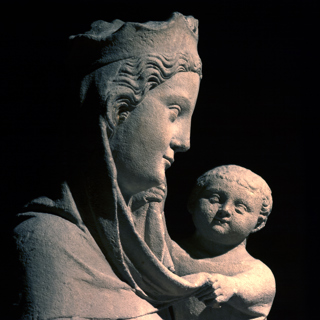
Apostles are Thrown Into Jail, then Released by an Angel: Paralleling Events of The Resurrection
Om episode
The Apostles are Thrown Into Jail and Released by an Angel . . . Paralleling the Events of The Resurrection In early Christian writings and poetry, the breaking of chains is written to describe the Resurrection. When they take the Lord down from The Cross, they place Him in a tomb. They then rolled the stone and sealed the tomb . . . in effect locking Him in. They then place guards in front of the tomb, so no one could steal the body and claim Resurrection. On Easter Sunday, we hear that an angel comes, rolls away the stone, and we discover the Lord is not in the tomb. The stone, the seal and the guards were powerless to stop the Resurrection. They cannot stop the gift of salvation. They are powerless against the Glory of Our Lord. Hear more within the Homily. In the first reading (not included within this audio), the Apostles are arrested. Why? Because the Apostles are speaking about the Resurrection. The power of it is bringing people to the Church. The Pharisees are angry due to the preaching of the Apostles. The leaders are jealous, because these uneducated men . . . the Apostles . . . are winning more hearts than they are. The Apostles speak with authority to the people. Rather than humbling themselves, the leaders act out of anger. They want to remove those who are a threat. So, what are the leaders’ reactions? . . . Paralleling the Events of The Resurrection The Apostles are thrown in jail. They lock them in jail. The leaders post a guard outside a strong / heavy jail door. What happens? An angel comes. The angel appears and delivers the Apostles as though they are in a tomb. What happens? Scriptures tells us they pass through the guards and the jail to freedom. The angel tells the Apostles to not be silent, as the leaders desire. Proclaim the victory of the Resurrection. The Apostles have a parallel experience. Why is this important for us? Hear more within the Homily. Listen to this Meditation Media.
